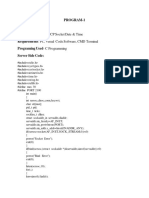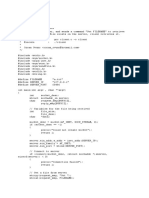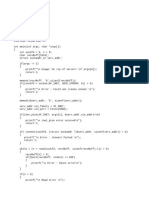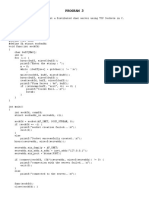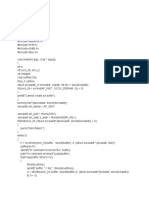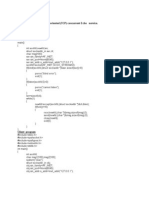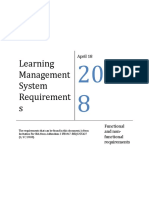0% found this document useful (0 votes)
38 views39 pagesSem Unp Lab Programs
The document describes code for TCP and UDP client-server programs to perform various tasks like echo, reverse string, and file transfer.
The TCP programs include an echo server and client that send a message back and forth, a reverse string server and client that reverse the input string, and a file transfer server and client that send a file between the two.
The UDP program includes a reverse string server that takes a string from the client, reverses it, and sends it back using UDP sockets.
Uploaded by
Enduku MeekuCopyright
© © All Rights Reserved
We take content rights seriously. If you suspect this is your content, claim it here.
Available Formats
Download as PDF, TXT or read online on Scribd
0% found this document useful (0 votes)
38 views39 pagesSem Unp Lab Programs
The document describes code for TCP and UDP client-server programs to perform various tasks like echo, reverse string, and file transfer.
The TCP programs include an echo server and client that send a message back and forth, a reverse string server and client that reverse the input string, and a file transfer server and client that send a file between the two.
The UDP program includes a reverse string server that takes a string from the client, reverses it, and sends it back using UDP sockets.
Uploaded by
Enduku MeekuCopyright
© © All Rights Reserved
We take content rights seriously. If you suspect this is your content, claim it here.
Available Formats
Download as PDF, TXT or read online on Scribd
/ 39






